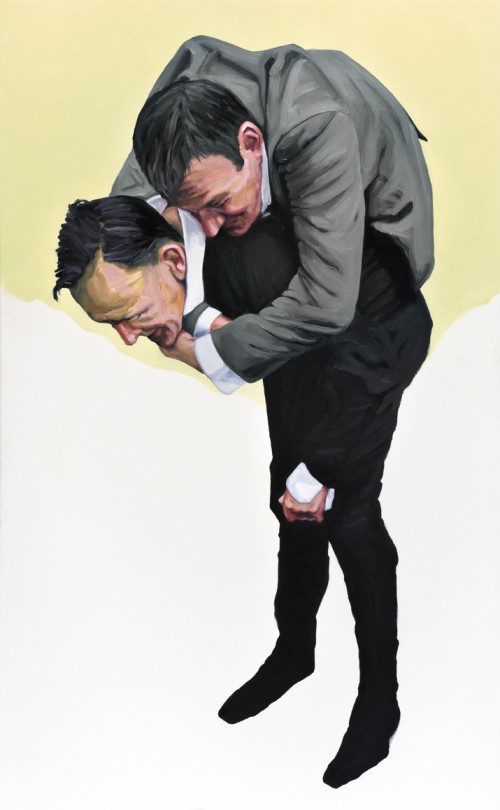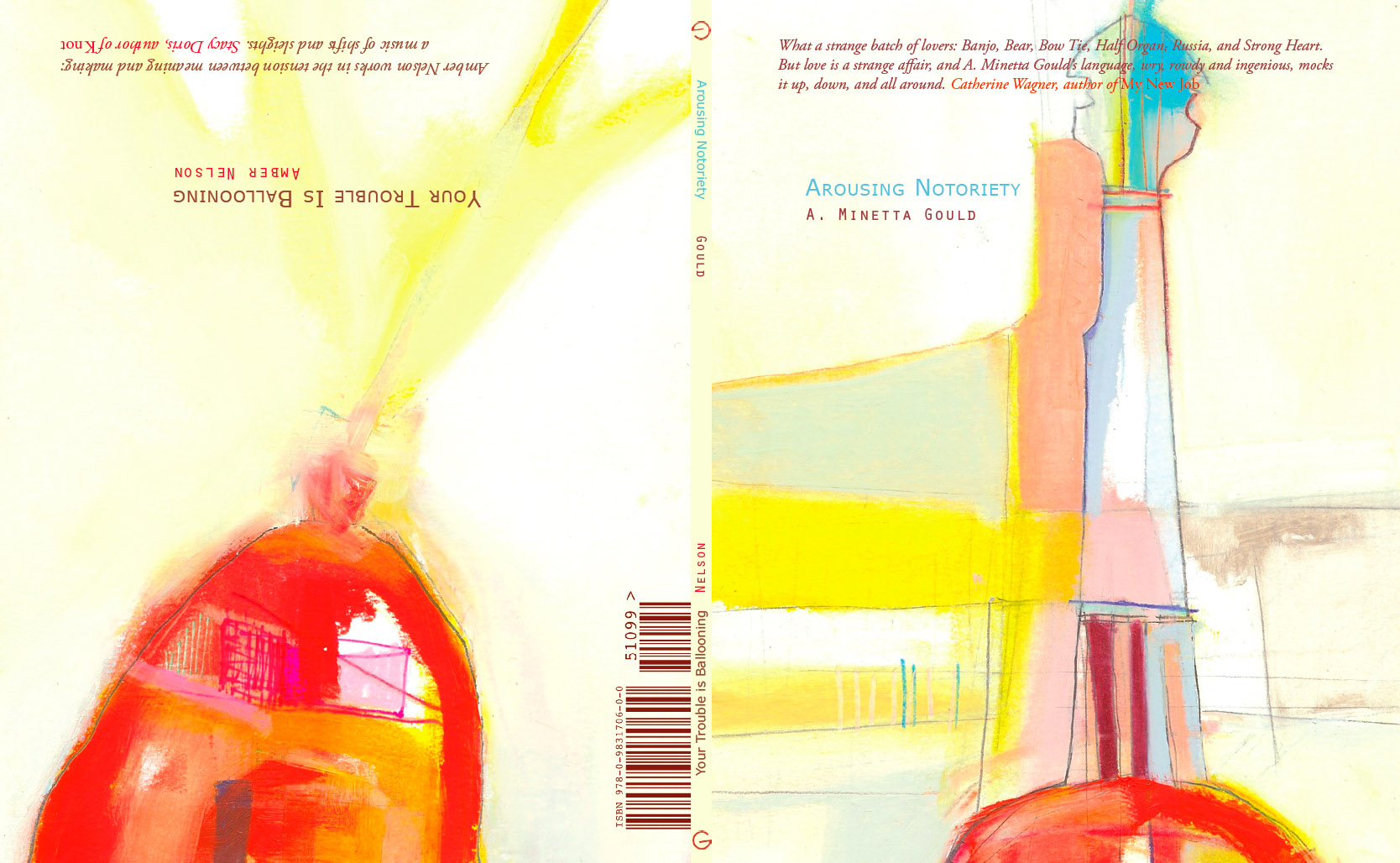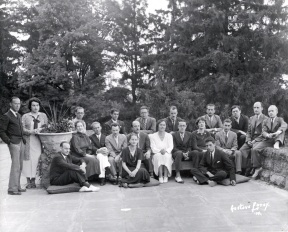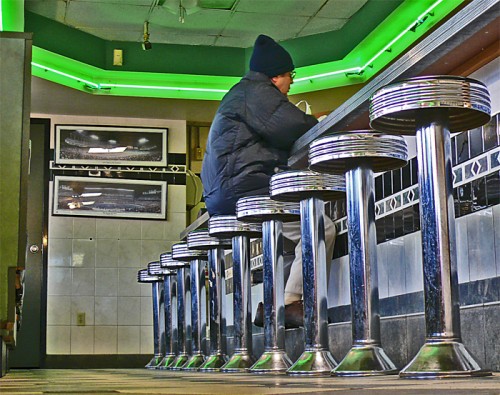Go Ahead: It is Friday
Man don’t drink none ain’t natural.
The beloved may be treacherous, greasy-headed, and given to evil habits.
It makes me feel like I have four legs instead of two.
Like my lemonade funny.
Ridiculed, beaten, thrown into a crowd.
(ravn)
Beer has a nice bitter taste after ice cream. Next to music, beer is the best.
The theme is the theme of humiliation.
Are you a hunchback or an old cripple? Whiskey on the house!
They are the we of me.
So why add orange juice?
Listen: if you want to steal the dessert spoon just steal the dessert spoon.
Are you a lawyer, agent, or friend?
Life is good. But there are problems.
Kem Nunn’s Surf Noir Novels
![Tapping the Source[4]](http://htmlgiant.com/wp-content/uploads/2011/01/Tapping-the-Source4-201x300.jpg) It’s the middle of winter. Everything’s dormant or dead. It’s raining a lot up here in Oregon, as it always does for half the year. I was walking around in my heavy winter coat, grey clouds overhead, and got to thiking about the curative warmth of sunshine, and the golden sexuality of beaches, which left me nostalgic for summer, which got me thinking about the way Nunn’s surf novels had carried me through a similarly dark Northwest winter in 2005, and about how it was pretty tragic how few people seemed to know about Nunn’s books, which, even carrying the bordering-on-corny “surf novel” tag, are dark and deeply engrossing.
It’s the middle of winter. Everything’s dormant or dead. It’s raining a lot up here in Oregon, as it always does for half the year. I was walking around in my heavy winter coat, grey clouds overhead, and got to thiking about the curative warmth of sunshine, and the golden sexuality of beaches, which left me nostalgic for summer, which got me thinking about the way Nunn’s surf novels had carried me through a similarly dark Northwest winter in 2005, and about how it was pretty tragic how few people seemed to know about Nunn’s books, which, even carrying the bordering-on-corny “surf novel” tag, are dark and deeply engrossing.
Kem Nunn (short for Kemp) grew up in the Angelean interior town of Pomona, a third-generation Californian. After piddling away his 20s, Nunn studied writing at UC Irvine and in 1984 published Tapping the Source. Centered on a naive teenager swept up in one surf crew’s Mafia-ish, pornographic-druggie-biker underbelly, Tapping the Source not only spawned the term “surf noir” for its dark themes and gripping narrative style, but it single-handedly saved what was previously a joke genre. With surf-romance schlock like James Houston’s A Native Son of the Golden West and patronizingly formulaic nonfiction like Caught Inside, In Search of Captain Zero, and, of course, Gidget, surf books have always occupied the lowest rung of commercial publishing, somewhere between niche market how-to guides and pure pulp. As the product of a quieter, once rural Southern Cal, Kem saw surfing as a metaphor “for what we had here and what we have lost.”
Ever Be Filled: An Interview with Matthew Simmons
 Late last year Keyhole Press released a short book of fiction about black metal by Matthew Simmons, The Moon Tonight Feels My Revenge. Given its heavy inspiration, the texts employ a surprising and refreshing mix of thoughts about creation and duress, delivered in the eye that only Mr. Simmons could pull off. Over the past month Matthew kindly answered some q’s about the book.
Late last year Keyhole Press released a short book of fiction about black metal by Matthew Simmons, The Moon Tonight Feels My Revenge. Given its heavy inspiration, the texts employ a surprising and refreshing mix of thoughts about creation and duress, delivered in the eye that only Mr. Simmons could pull off. Over the past month Matthew kindly answered some q’s about the book.
* * *
BB: How did this book begin? Was it your intention specifically to write a book about black metal, or did a specific story come first?
MS: I wrote a couple of one-man black metal band pieces for my blog a while back. (I think I was just writing about black metal bands and then noticed that all the ones I liked and wanted to write about were made up of one guy.) When I got together with Keyhole for the collection coming out next year, Peter asked if I had something shorter, a couple of stories that weren’t going to be in that collection, that we could gather and publish in a little minibook. I had a few, and I decided to use the short black metal pieces as a gathering principle and as little breaks between longer stories that, though not explicitly about one man black metal bands, felt like cousins to them. The three full stories in the book feature three individuals who isolate or world build or reject collaboration.
Quiet City by Connor O’Brien

Quiet City, a wonderfully designed collection of stories by Connor O’Brien, is available for purchase, or, provocatively, pay-by-tweet or -facebook, where the PDF is made available after tweeting/facebooking it. O’Brien, in our correspondence, says:
The book is a bit of an experiment in selling literature online (it actually doubles as a test case for my PhD thesis on publishing) […] the online editions use social networking as currency: you pay with a tweet or facebook post. As a happy coincidence, the title story imagines a world in which social networking stats have superseded cash, so there’s a bit of an interesting tension there — the fiction creating the reality.
Interview: Bryan Charles
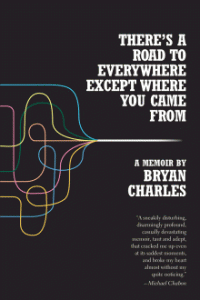 I read Bryan Charles’s memoir, There’s a Road to Everywhere Except Where You Came From, in that non-stop way that feels like your life depends on it. (A few months ago, Justin ran an excerpt of it.) It was a little funny, a little lonely and a little unsettling, but when one chapter ended I moved on to the next as it I was starved for it. Maybe this is the definition of a compelling voice, one that just makes you listen even when you don’t know why. A friend who had also read There’s a Road, as well as Charles’s novel described him as a particularly earnest writer, and I have to agree, so maybe that’s another reason I read so intently—an earnest voice among shelves and shelves of ironic ones. This interview was conducted over email.
I read Bryan Charles’s memoir, There’s a Road to Everywhere Except Where You Came From, in that non-stop way that feels like your life depends on it. (A few months ago, Justin ran an excerpt of it.) It was a little funny, a little lonely and a little unsettling, but when one chapter ended I moved on to the next as it I was starved for it. Maybe this is the definition of a compelling voice, one that just makes you listen even when you don’t know why. A friend who had also read There’s a Road, as well as Charles’s novel described him as a particularly earnest writer, and I have to agree, so maybe that’s another reason I read so intently—an earnest voice among shelves and shelves of ironic ones. This interview was conducted over email.
Catherine Lacey: This was a weird book to me. I can’t seem to get comfortable with it. It’s been sitting on my desk for a few weeks and sometimes I consider moving it or hiding it, like we’re having a fight or something. A friend told me he thought of your writing as incredibly earnest, and I’ll add brave and unpretentious to that, but there’s also something really emotionally unavailable about the book, which is odd since it’s a memoir. Do you think of it the same way? How did you feel while writing it?
Bryan Charles: The memoir was begun at a point of frustration. I’ve talked about this elsewhere, but I had initially tried to use some of the same material—mostly the 9/11 stuff—in a novel. Once I realized I could actually write a novel, which only occurred to me after I finished my first one, I knew I would use my experience working in the World Trade Center, the attack, and the aftermath in a book in some way. At that time some of the so-called 9/11 novels had come out, or were scheduled to come out, and I felt, rightly or wrongly, that these books, written by people with no direct connection to the attack—except for maybe being in in the city that day—were totally without merit. I was incredibly territorial about it, probably to a fault. I tried to keep a slightly open mind. I read one of those books, the Jonathan Safran Foer book, and I thought it was terrible and should never have been published. It’s an awful, inexcusable novel. I still think whoever was responsible—whichever editor or publisher—for keeping that flipbook thing at the end, with the 9/11 jumper falling upward—whoever let that slide should be fired. Maybe they have been already. READ MORE >
The Pleasures of Cheever
Some of you might very frequently pick up a book feeling certain that you will like it. This happens to me pretty rarely; usually only when I’ve read the book already, or when it is by Charles Dickens or Virginia Woolf. So it was with particular relish when, still feeling the pang of having no more of Middlemarch to read, I opened The Wapshot Chronicle by John Cheever.
I’d only read Cheever’s stories, which I really love, whether the earlier perhaps more conventional ones or later so-called experiments like “The Swimmer.” Putting aside the question of whether “experimental” is or is not a troublesome descriptor of any art, I don’t think it fits well with Cheever at any stage in his career. One gets the sense with Cheever that he read widely and deeply, probably heavily in Shakespeare and the classics, took what he found useful and then made sentences that were all his own, without giving any thought to fashion and currency.
Sentences like:
We have all parted from simple places by train or boat at season’s end with generations of yellow leaves spilling on the north wind as we spill our seed and the dogs and the children in the back of the car, but it is not a fact that at the moment of separation a tumult of brilliant and precise images–as though we drowned–streams through our heads. We have indeed come back to lighted houses, smelling on the north wind burning applewood, and seen a Polish countess greasing her face in a ski lodge and heard the cry of the horned owl in rut and smelled a dead whale on the south wind that carries also the sweet note of the bell from Antwerp and the dishpan summons of the bell from Altoona but we do not remember all this and more as we board the train.
NOW AVAILABLE for preorder: The Weather Stations by Ryan Call
I’ve been waiting for this one for a long time and it is finally here:
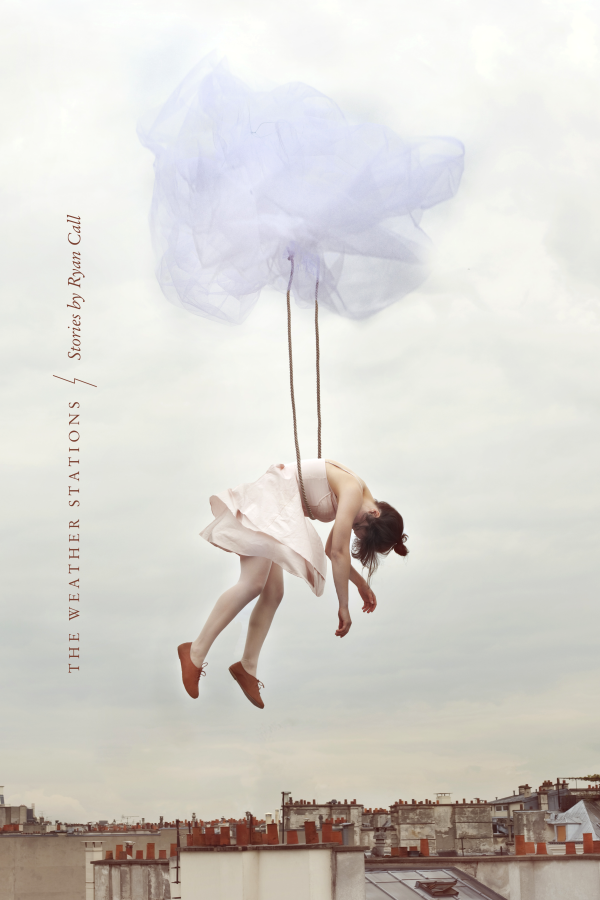
Available for preorder now from Caketrain for only $8, or together with any of Caketrain’s beautiful single author editions for $12.
Michael Martone : Michael Martone : Michael Martone
:
Michael Martone on William Gass, the most important contemporary fiction writer. Of the lessons he learned from “In the Heart of the Heart of the Country”, he says: READ MORE >

